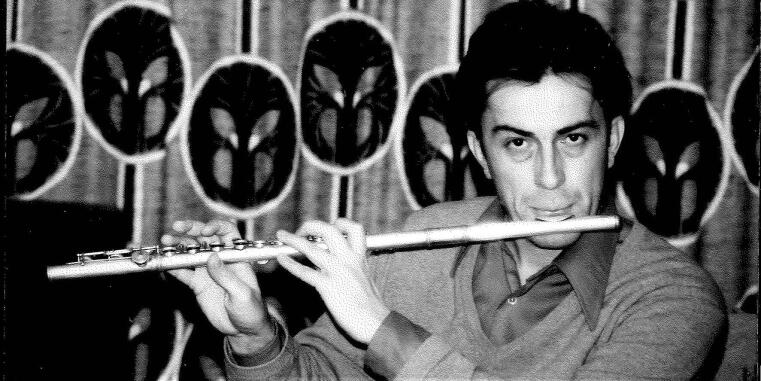

Wolf Dietrich (1934-2014) left us with little information about his life. We know that he was the son of a music teacher, grew up in the Rhine-Main area, and spent most of his life there.
After attending a humanistic secondary school, where he obtained his "Abitur", Dietrich initially worked in the technology and IT sector. However, his true passion was ethnomusicology. His interest was sparked by Egerländer bagpipes. The bagpipe, in all its forms in different cultures, became a lifelong passion.
Without any great reservations on either side, Dietrich was in contact with Prof. Felix Hoerburger (1916-1997, Regensburg) and Prof. Kurt Reinard (1914-1979, Berlin), who appreciated his abilities as a researcher, even though Dietrich had not undergone any formal university training. In order to educate himself in ethnomusicology, he compiled an extensive library containing books on the languages and histories of the regions he researched, as well as relevant musicological literature.
Dietrich undertook his first field research during holiday trips to Greece, Montenegro, and Turkey. Although the Balkan Peninsula and Turkey were to remain his lifelong regional focus, he also conducted field research in East Asia (Indonesia and Malaysia) and Central Asia (Kazakhstan).
Dietrich documented all of his recordings and research findings extremely carefully: both in the form of metadata (names of musicians, time/place/duration of recordings, etc.) and in the form of notes containing further musical and cultural information. When it came to the recordings themselves, Dietrich not only demonstrated an affinity for technology but also attached great importance to the quality of his recordings. All of his research data is also documented in a comprehensive catalogue system, which shows his roots in the IT sector.
In the 1960s Dietrich offered the recordings he made in Greece to the "Hessischen Rundfunk" (Hesse Broadcasting), which immediately commissioned him to produce radio programmes. In 1993, Dietrich finally left the IT industry and devoted himself to research and broadcasting, producing over 500 programmes for various stations in German-speaking countries. Dietrich often used his own recordings for the production of the programmes.
At the same time, Dietrich also maintained his contacts with German-speaking ethnomusicology and was a frequent attendee at conferences of the International Council for Traditions of Music and Dance (ICTMD, then ICTM). Occasionally, publications by Dietrich can also be found in musicological contexts.
In 2013, his collection was donated to the Musicology Institute at the University of Münster, where it has since been subject to extensive research conducted by the team of Prof. Dr. Ralf Martin Jäger.
